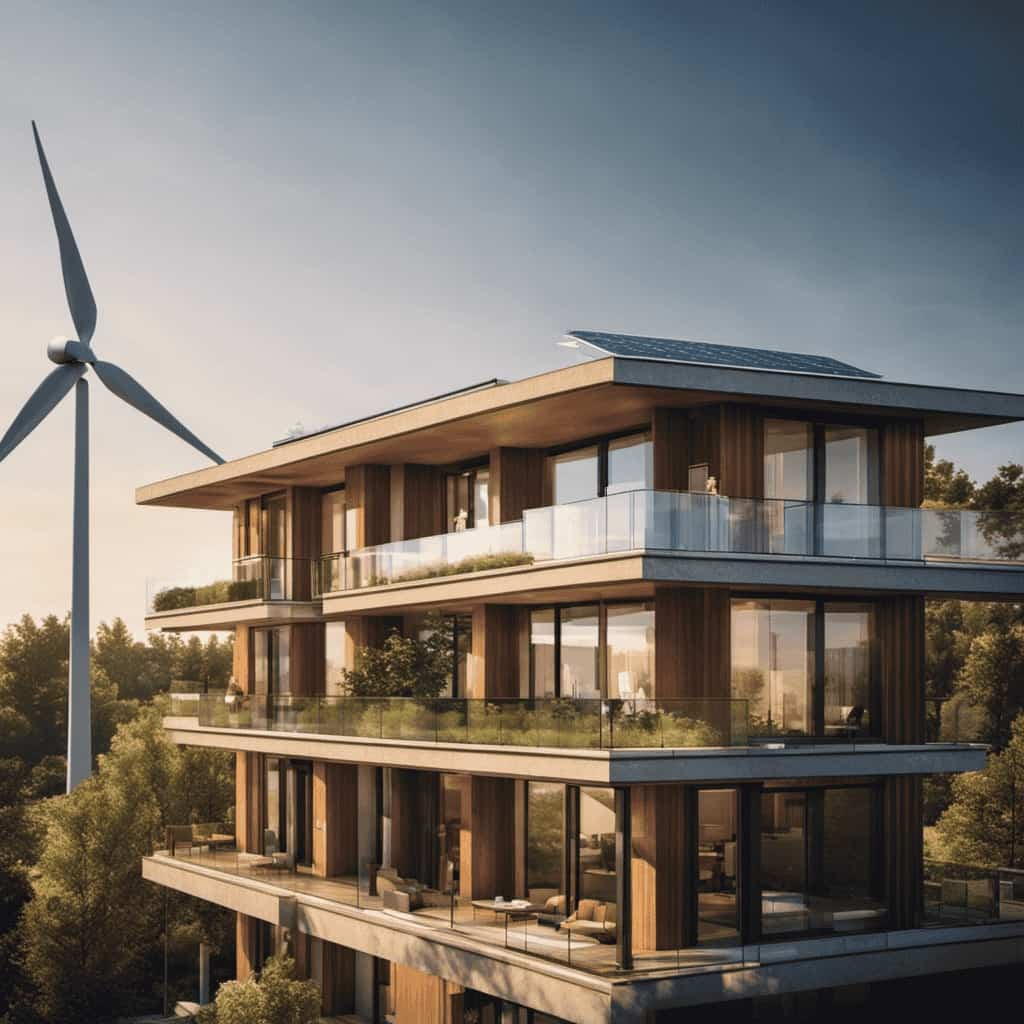Your heat pump’s lifespan is closely linked to how much energy it uses. The more efficient your system operates, the less strain it experiences, which means fewer breakdowns and longer life. Regular maintenance, proper sizing, and stable temperatures also help reduce unnecessary wear. When energy consumption stays low, your unit works smarter, not harder. To discover how to maximize your heat pump’s durability and keep it running smoothly, explore the key factors that influence its longevity.
Key Takeaways
- Lower energy consumption reduces system workload, decreasing wear and extending heat pump lifespan.
- Proper maintenance prevents efficiency loss, minimizing unnecessary energy use and component stress.
- Correctly sized units operate more efficiently, lowering energy demands and prolonging lifespan.
- Consistent temperature regulation reduces cycling and system fatigue, enhancing durability.
- Excessive energy use indicates increased mechanical strain, accelerating component deterioration and shortening lifespan.

Understanding how energy consumption impacts the lifespan of your heat pump is vital for making informed decisions about home efficiency and maintenance. When considering how your heat pump operates, it’s important to recognize that efficiency factors directly influence not only your energy bills but also the device’s longevity. A highly efficient heat pump uses less energy to deliver the same level of heating or cooling, which reduces stress on its components. Conversely, a less efficient system works harder, consuming more energy and increasing wear and tear over time. This extra strain can accelerate deterioration, leading to more frequent repairs or even premature replacement.
Your maintenance practices play an essential role in this dynamic. Regular upkeep ensures that your heat pump runs smoothly and maintains peak efficiency. For example, changing filters, cleaning coils, and inspecting components prevent dirt and debris from impeding airflow, which otherwise forces the system to work harder. When your heat pump is well-maintained, it consumes less energy, and its parts don’t experience unnecessary stress. This directly correlates with a longer lifespan, as the system isn’t pushed beyond its designed capacity. On the other hand, neglecting maintenance can cause decreased efficiency, increased energy consumption, and faster component failure.
Another key efficiency factor to consider is the proper sizing of your heat pump. An undersized or oversized system tends to operate inefficiently, increasing energy use and putting undue strain on its parts. Proper sizing guarantees your system runs at peak capacity, lowering energy consumption and reducing wear. Additionally, making sure your home is well-insulated and sealing leaks minimizes the workload on the heat pump, further decreasing energy use and extending its lifespan.
Temperature regulation also impacts energy consumption and the longevity of your heat pump. Consistently fluctuating or extreme temperatures force the system to operate more intensively, which can accelerate component fatigue. Setting your thermostat to a moderate, consistent temperature helps maintain efficiency and prevents unnecessary cycling, ultimately preserving the system’s health.
Frequently Asked Questions
How Does Climate Variation Impact Heat Pump Durability?
Climate variation markedly impacts your heat pump’s durability by challenging its climate adaptation and temperature resilience. Extreme cold or heat forces the system to work harder, increasing wear and tear. Regular maintenance and choosing models suited for your local climate help improve resilience. This proactive approach ensures your heat pump can withstand temperature fluctuations, prolonging its lifespan and maintaining efficiency despite climate changes.
Are There Specific Energy-Saving Practices That Extend Heat Pump Lifespan?
Yes, you can extend your heat pump’s lifespan by adopting energy-saving practices like insulation upgrades and thermostat optimization. Improving insulation reduces workload, preventing unnecessary energy consumption and strain on the system. Additionally, setting your thermostat wisely avoids overworking the heat pump, reducing wear and tear. These practices help lower energy use and promote longevity, ensuring your heat pump operates efficiently for years to come.
What Maintenance Routines Best Preserve Heat Pump Efficiency Over Time?
Think of your heat pump as a finely tuned engine. To keep it running smoothly, regularly replace filters to prevent dirt buildup and guarantee ideal airflow. Schedule refrigerant recharges if you notice reduced efficiency, as low refrigerant levels strain the system. These maintenance routines help preserve heat pump efficiency over time, reducing energy use and extending its lifespan, much like tuning a car keeps it running like new.
Can Energy Consumption Patterns Predict Heat Pump Failure?
Yes, your energy consumption patterns can help predict heat pump failure. If you notice unusual increases in energy use, it may indicate the system is working harder due to underlying issues. Monitoring these patterns allows you to catch signs early, enabling failure prediction and timely maintenance. By paying attention to energy consumption, you can prevent costly breakdowns and extend your heat pump’s lifespan.
How Do Different Heat Pump Brands Compare in Longevity?
Ever wondered which heat pump brand lasts the longest? You’ll find that brands with strong reliability reputation and extensive warranty coverage tend to offer more durable options. While some brands excel in longevity, others might not stand the test of time. To make the best choice, compare their warranty terms and customer reviews. Remember, investing in a reputable brand can save you money and hassle in the long run.
Conclusion
As you consider your heat pump’s energy use, remember that efficiency isn’t just about savings — it’s tied to its lifespan in ways you might not notice. Sometimes, pushing for lower energy bills can unintentionally shorten your unit’s life. So, by balancing energy consumption with proper maintenance, you might find that what seems like a coincidence — a longer lifespan and lower costs — actually work together for your comfort and peace of mind.









